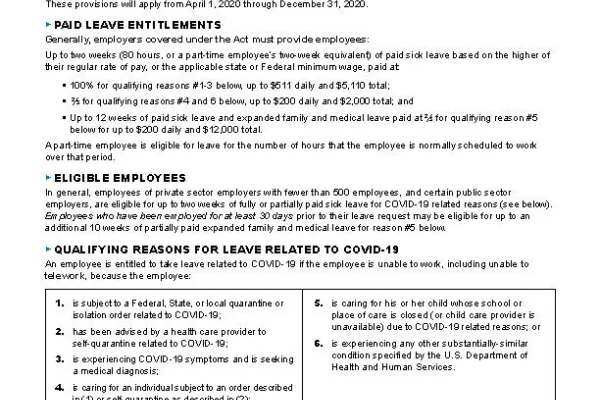Employee Rights Under the Families First CoronaVirus Response Act

Dangerous Work
The NLRA provides protection for workers who refuse to work under dangerous conditions. It reads that the “quitting of labor by an employee or employees in good faith because of abnormally dangerous conditions” shall not be considered a strike. 29 U.S.C. § 143. This means that an employer cannot discharge or retaliate against a worker for ceasing work because of an abnormally dangerous condition. Clark Eng’g & Const. Co. v. United Bhd. of Carpenters & Joiners of Am., Four Rivers Dist. Council, 510 F.2d 1075, 1079 (6th Cir. 1975).
The Board looks to the following factors to determine whether work was abnormally dangerous:
(1) the employees must believe in good faith that their working conditions were abnormally dangerous:
(2) the belief must be a contributing cause of the work stoppage;
(3) the belief must be supported by ascertainable and objective evidence; and
(4) the perceived danger must pose an immediate threat to employee health and safety.
TNS, Inc., 329 NLRB No. 61 (1999).
Unemployment Issues
The Missouri Department of Labor and Industrial Relations has issued the following guidance regarding unemployment benefits and coronavirus:
1) Workers receiving sick pay, vacation pay, or paid family medical leave are not entitled to unemployment because they are not considered “unemployed.”
2) If an employer shuts down temporarily due to coronavirus, workers will generally be eligible for unemployment.
3) Individuals under a mandatory quarantine due to coronavirus concerns will generally be eligible for unemployment.
4) Individuals under a self-quarantine for coronavirus may be eligible for unemployment.
5) Individuals ill from coronavirus may be eligible for unemployment.
6) Workers who leave work to care for children because their schools closed will generally not be eligible for unemployment.

